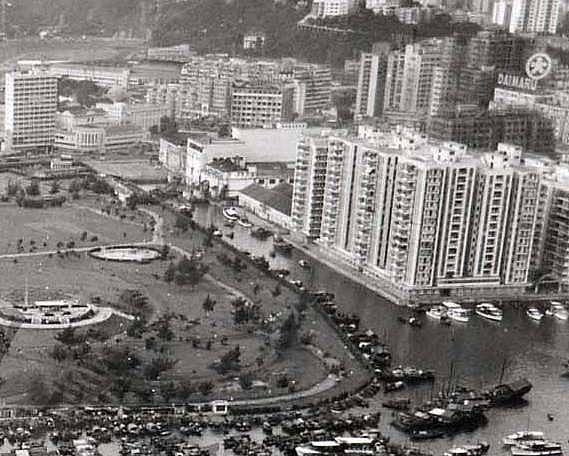Born in a village in Brazil, footballer Pelé had become one of the most recognizable faces in the world by 1970. Image above shows him with another football legend, Diego Maradona, during an interview with El Grafica, a publication, in 1979. Below read about how Pelé was brought to Hong Kong.
IN THE LATE 1960s, the British Hong Kong government started inviting an increasing number of high achievers from the Chinese community to help govern the fast-growing city. By putting talented people into slots as District Councillor, Urban Councillor, or Legislative Councillor, they could receive practical help, and a flood of creative ideas from bright, well-connected people in the majority community.
One of them was an engineer and sports fan named Hu Fa-kuang who had made a huge success of providing elevators for a city that was growing vertically at high speed. Mr Hu, whose company was called Ryoden International Group, had always been keen on the way sports sailed over the minefield of politics to create widespread positivity in communities.
“Let’s invite Pelé to Hong Kong,” he said, at an Urban Council meeting one day in 1970. He believed sports was important for the soul, whether you were a participant or just an audience member, and would thrive in this crowded, stressful, work-obsessed city, where people really needed group entertainment.

The city on the south coast of China had never invited a sports celebrity of that stature before, but the idea quickly caught fire, and resources were made available to bring the Brazilian player to Hong Kong.
The timing was perfect. Pelé had just powered Brazil to a third World Cup win in June of 1970, so his name had been everyone’s lips before the day came in December when flew into Hong Kong.

The Presidential Suite at the Hilton Hotel (which was at the location in Central where The Center building is now) was reserved for the football star – but he declined it, saying that he would rather stay in a room on the same floor as his team members.

The visitors played four matches, and of course they roundly defeated the local teams. But the losers, of course, accepted defeat graciously. To be defeated by Pelé was an honor almost as great as the honor of being allowed to play against him!

Pelé enjoyed his visit to Hong Kong, and promised to return – which he did, two years later, to play local teams in exhibition matches. He officially retired in 1977, but continued to make himself available for promotional events, and visited Hong Kong again in 1982 and on other occasions.

Meanwhile, Hu Fa-kuang’s prediction that sports culture would be good for Hong Kong turned out to be correct, with a wave of rising support from the public for local teams – and enthusiasm from the government, happy to work with developers to provide sports facilities. The Hong Kong government invited Mr. Hu to take the role of Chairman of Council for Recreation & Sport in 1985.
Over the following decades, two families from the Hong Kong business community, the Hus and the Foks, became strongly associated with support for athletes and sports stadiums in Hong Kong.
Meanwhile, many people in the Hong Kong sports scene have been sharing memories this week, after reports that Pelé had just died on Thursday last week at the age of 82. Hu Fa-kuang died earlier this year, at the age of 99. [Click this line to read his extraordinary story.]
Half a century may have passed since Hu Fa-Kuang invited Pelé to Hong Kong, but the next generations of the same families have maintained their interest in sports. In the video below, Kenneth Fok Kai-kong is interviewed by Herman Hu Shao-ming in our series Friday Beyond Spotlights.
Football remains popular in Hong Kong, and will be a big part of the range of activities at the new Hong Kong Sports Park in Kai Tak, due to open in 2024.
Many fans know that football is traditionally nicknamed “the beautiful game”, as if it somehow differed from all other sports. But few people remember how that phrase came to be. It came from the mouth of Pelé, then known by his birthname of Edson Arantes do Nascimento. Football, he said, was the “jogo bonito” – the beautiful game.
For Hong Kong footballers and fans enjoying games during this bright winter season, Pelé clearly got that one right.
Image at the top from El Grafica, a Brazilian publication.
